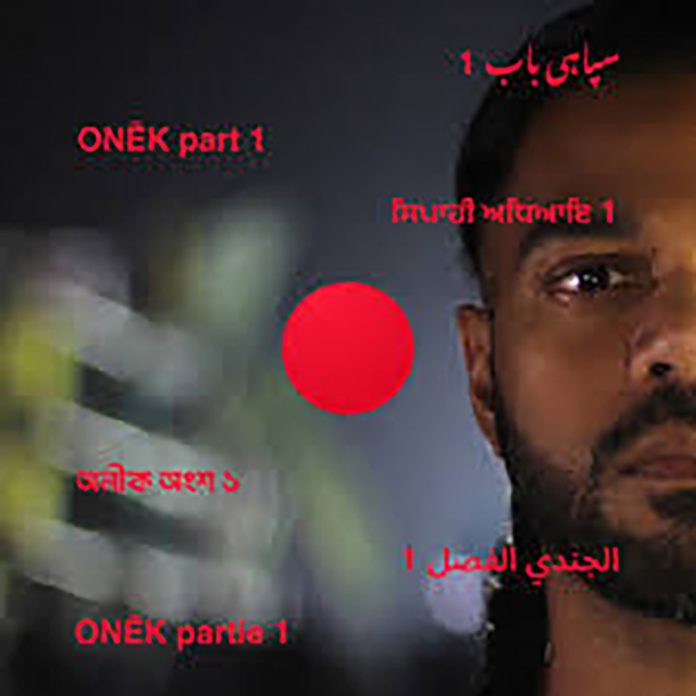ONĒK-Part 1 begins on a busy street. Cars race by, horns honk, bells ring, feet tap against concrete and anonymous voices call out for attention. The voices fade into a sitar-esque melody and a classic hip-hop bass drop, leaving the inexperienced listener to wonder if they are in Bangladesh or New York.
This EP is an intersection, created by rapper and singer Anik Khan (aww-NEEK KON) who was born in Dhaka, Bangladesh and raised in Queens, New York.
Khan has always incorporated his Bangladeshi roots into his music and lyricism. Growing up in a diverse community in New York, the state that birthed hip-hop, Khan pulls sonic influences from different cultures while keeping a South Asian flair front and centre. Though he has shown this on past tracks like “Approved” and “Rotate,” ONĒK-Part 1 feels like an introduction to a personal journey.
The EP title alone is a form of reconnection.
After years of allowing people to pronounce his name as UH-neek, he decided to spell his name the way his parents have always pronounced it. This interlocking of home and social life twists in different directions over the course of five songs.
The lows are consistent with lyrics reflecting depression and discouragement. Khan reached for the underground sounds of West Bengal in the dek bangla bass track, “Up & Down”. This song could slip into a mix at a club and keep the party going, just like in Santipur, the West Bengal village he describes in one of his Instagram videos.
The weight of division in his own community still holds Khan back despite the cultural celebration in ”Up & Down.”
“Always see headlines for Indian artists, but nothing for Lankans and Deshis / Indo-Carribeans, Nepalese, Muslims / We all feel the same ‘cause we don’t like Indians / We try to love you, but we feel like elephants silenced in rooms.”
“Up & Down” paints a picture of a party where closeness exists only in physical proximity. Silent prejudice creates emotional distance in a crowded room but is ignored for the sake of a good time.
Khan stays on lower ground on “Over / Under” and mulls over the emotional weight he is under and all the hardship he is done with, but can’t get over.
Home remains a source of hope through his mother, whose muffled voice slips into the track in Bangla as Khan begs for prayers. “Mom says, you need God regardless,” plays like the musical version of women in his family nurturing and detangling his roots while he stays on the ground.
Khan simultaneously grounds himself and lifts his spirits through affirmative choruses.
In “PAF.No / Ya Baba,” Khan describes loss of direction and frustration in the world, but the jumping bass mimics the leap of faith he mentions in the song. Although the chorus samples from the original song PAF.no by Karpe, Khan’s rendition feels like a personal prayer in a time of confusion.
Though lost in the world, the vine of hope is preserved through connection within and outside of his culture.
With a confident and affirmative stance, closing track “East2West” combines South Asian and dancehall rhythms in what sounds like a chant for unity. In this musical manifestation of co-existence, Nesta and Khan seamlessly blend their styles while staying true to their individual sounds.
“Like beach and a breeze we need each other,” they affirm in a way that slaps xenophobia in the face, if the confrontation in “Came From” isn’t enough.
In ONEK – Part 1, Khan untangles his roots, ties them together and uses them as a rope to climb out of societal boxes. Despite the lyrics about hardship, the instrumentals are gritty, upbeat, and tinged with hope. The mixture of traditional sounds, Bangla, cultural lingo and hip-hop reflects the strength that is required for adaptability and resilience needed to remember who you are.
The full album is set to be released on October 22, 2025.




